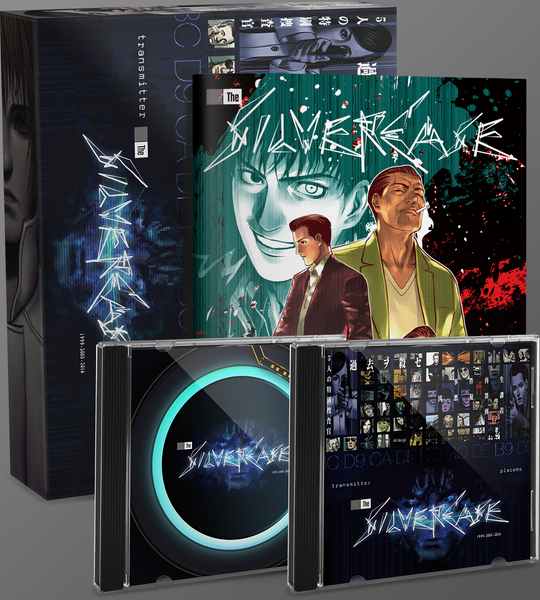Well, two advices, which I consider quite obvious, are Ever17+Remember11 and I/O+RootDouble.
Ever17 is, sort of, the main "source of inspiration" (uh-huh) behind 999/VLR/ZTD. There were two main persons responsible for its script and direction, Uchikoshi and Nakazawa - the former later became the main driving force behind 999/VLR/ZTD. There are a LOT of plot devices, "appropriated" from Ever17, in 999/VLR/ZTD. It has, however, some very glaring pacing issues, and pretty much the whole point of it is its True Route, which, naturally, is the last one you get access to, after something like 20 hours of much less exciting scenes. Still, if you are at all interested in origins of 999/VLR/ZTD, this is the VN to read. You might also notice (more, like, in the passing) that the setting and the faux-scientific infodumps are treated, sort of, more seriously in this VN than in 999/VLR/ZTD.
Remember11 is a deconstruction of Ever17. Similarly to 999/VLR/ZTD, it uses tropes from Ever17 quite heavily, however, it uses them VERY differently from those three, and it goes in a VERY different direction with them. I would highly advise you to read this VN (if at all) immediately after (and ONLY after) reading Ever17. If need be, after the "completion" of this VN, there are also the translation of the official (written by Nakazawa) "Infinity Timeline" and a fan-written plot breakdown available on the Net, which will probably clear some of the questions you might still have after reading it. Anyway, it was also written by Uchikoshi+Nakazawa duo, however, the latter played a much more pronounced role in its development, than in the case of Ever17. The difference in style between this VN and 999/VLR/ZTD is also much more pronounced, than in the case of Ever17.
I/O and Root Double were planned, directed and, occasionally, written by Nakazawa without Uchikoshi's involvement at all. Both are much bigger (let's say, that if E17/R11 are 30-40hr VNs, then I/O is something like 60 and RD, if read completely, is something like 80) than any of E17/R11/999/VLR/ZTD, and there is a much more pronounced emphasis on setting and character motivations (I must say, however, that there is no overlap between I/O's and RD's settings, and they also don't share any characters), as well as very precisely defined problematics (again, I/O has its own problematics - and Root Double has its own) in both of them. Both are also pretty much dead serious, and both, I think, have some serious pretensions to be treated as Serious Literary Works (akin to the likes of Pathologic). The twists are also treated in less bombastic manner in both, due to very extensive foreshadowing. In any case, I'd argue, that R11 is written better than E17, 999, VLR and ZTD - and I/O + Root Double are written better than R11. Both also have some VERY serious (but, in contrast with E17, not immediately apparent) problems with their structure and pacing. I/O is sort of somewhat more similar to some of the ideas from R11, while RD is sort of somewhat more similar to E17 in terms of its general setting (in contrast with 999/VLR/ZTD, which borrow E17's _twists_, but not its _setting_), but, in the first case, the ties are very-very light, and, in the second one, there is so much added, and it's used so differently, that it's more like complete reimagining than a rehash.
Also, Uchikoshi was the scriptwriter behind the anime-series "Punchline" - and, well, I'll just say, that it very much shows (meaning that yes, some of its aspects are very similar to 999/VLR/ZTD). The first half of the show is very much worth it, the second one (after the reveal) - not so much.
Also, this is sort of an offtopic, since it's not VN-related, but I highly advise you to read Ring/Ringu (yes, it's that book those famous horror movies are based on - no, even the Japanese one is a completely different thing, compared to the book), Spiral/Rasen and, maybe, Edge/Ejji by Koji Suzuki.
![The Year of Incline [2014] Codex 2014](/forums/smiles/campaign_tags/campaign_incline2014.png)

![The Year of Incline [2014] Codex 2014](/forums/smiles/campaign_tags/campaign_incline2014.png)














